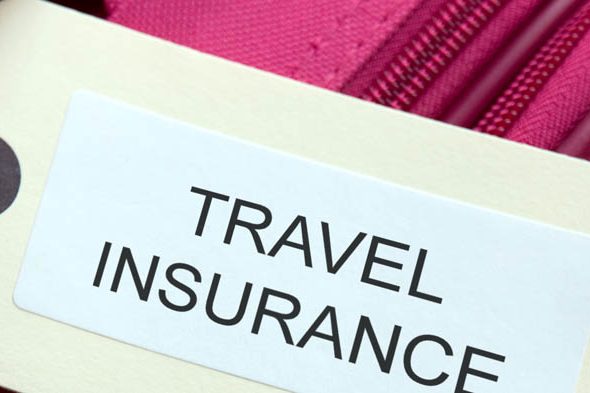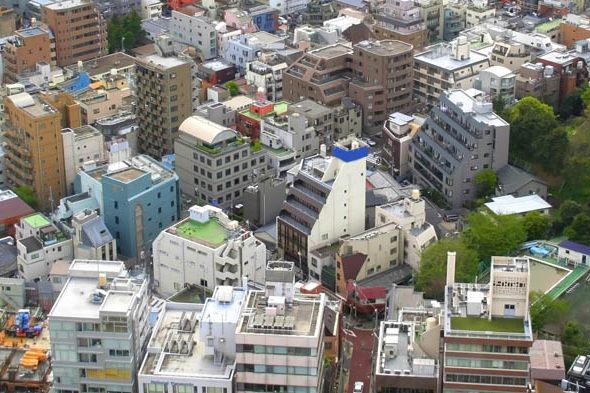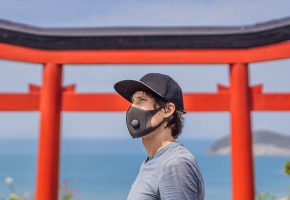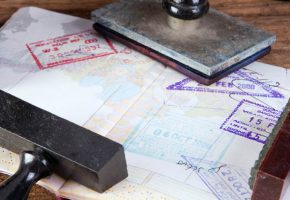Preparation

When you book our Working Holiday support program in Japan, you can choose to start in either Kyoto or Tokyo. At both locations, we operate our own sharehouse accommodation and support office. About our new Kyoto sharehouse Our new Kyoto sharehouse offers a comfortable, convenient base in Fushimi, with our support office located in the same building—just like in Tokyo. This setup makes it easy for you to reach us in person if you stay in one of the dorm or twin bedrooms in our sharehouses. At our offices, we provide introductions and job support. During office hours (Monday-Friday), you’re welcome to stop by for any assistance you need. We also offer a dedicated area with a PC and printer for job research and resume printing. Our Working Holiday support services in Kyoto and Tokyo assist you with: 👉️ Visa application process👉️ Travel planning and preparation👉️ Job finding in Japan👉️ Formalities such as Residence Registration, Tax Number Application, Health System Registration, Pension Exemption, Bank Account Setup, and Phone Contract Assistance👉️ Accommodation in Japan👉️ Japanese language lessons👉️ Socializing with Japanese individuals and other foreign travelers We also offer a monthly language exchange with locals, giving you the chance to practice your Japanese skills and connect with Japanese people. Additionally, we can arrange Working Holiday jobs at farms, traditional Japanese hotels (ryokans) across various cities and regions in Japan (for those with basic Japanese skills), ski resorts, and on Sado Island (agriculture, fishing, tourism) prior to your arrival. We also offer placements for babysitting and for positions as English and French assistant teachers at public schools. Contact us for more details about babysitting and assistant language teacher jobs. Our pre-arranged job packages include all support services in Tokyo or Kyoto, allowing you to fully experience Japan in all its diversity! What are you waiting for? Working Holiday start dates in Kyoto are once a month—come join us! 😃👉️ You can easily book your Working Holiday in Japan through our website:BOOK YOUR WORKING HOLIDAY IN JAPAN HERE!
Latest update: November 19, 2020. This page answers some common questions about a Working Holiday in Japan since the issuance of Working Holiday visas has resumed in late October 2020. As procedures and regulations might change at any time, please always consult with the Japanese embassy or consulate in charge of you. This page is for basic information purposes only. All information has been collected to the best of our knowledge, but we do not guarantee the accuracy of this information. The information is not legally binding in any way. Is it possible to get a Working Holiday visa now? Yes, since end of October 2020, after a suspension of 7.5 months, Working Holiday Visas for Japan are issued again to individuals of all nationalities who can get a Working Holiday Visa. You need however a written pledge from a Japanese company ("Residence Track"). What is the written pledge ("Residence Track")? The written pledge is a document written in Japanese (see it here), which must be filled out and signed/stamped by a Japanese company, pledging that you as the traveller ona Working Holiday visa, will follow the COVID-19 related safety regulations imposed by Japanese government. The company signing the pledge takes responsibility for you during your entire stay in Japan and will face drastic consequences should you not obey to these regulations. This is a big responsibility that few Japanese are willing to take. Can I buy a written pledge somewhere? No, it is illegal for a Japanese company to just sell the written pledge. Should you find any such offer, you should be very careful if it is a legitimate one. So where do I get the written pledge ("Residence Track") from? There are three possibilities: From an employer in Japan, which is a Japanese company registered in the Commercial Register of Japan with a commercial registration number From a Japanese language school willing to issue the pledge to its language students From a Working Holiday support organization registered as a company in Japan such as World Unite! that supports you during your whole time in Japan (Source) When should I apply for a Working Holiday visa? If you book Working Holiday support with World Unite! and if you want to come to Japan as soon as possible on a Working Holiday Visa, you should allow a minimum of 3 weeks of lead time: Around one week to prepare your visa application documents and get the pledge, around 7-10 days for the embassy to process your documents and issue your visa and a little bit of buffer time to make sure you get everything sorted before the departure of your flight. In some countries you need to make an appointment with the Japanese embassy or consulate to hand in your visa application. The visa validity (the time between when the visa is issued and when you have to arrive in Japan) is currently 3 months in most cases. The one year you get on a Working Holiday visa then counts from the day you enter Japan (for some nationalities only 6 months, for Australians a maximum of 18 months). I already had a Working Holiday visa issued before the border closure in March 2020 that I have not yet used to enter Japan. Can I use it to enter Japan now? No, you need to re-apply for your visa, which is possible if you have not yet completed your 30th year of life by the time of applying for the visa. For Australians this might be different, we will add this part as soon as we have clear information. Which COVID-19 regulations do I have to follow? 1) COVID-19 tests Travellers from most countries need to provide a negative COVID-19 PCR test result (in English), with the test made within 72 hours prior to departure time of your flight to Japan. Currently only if you are flying into Japan from Australia, New Zealand, South Korea and Taiwan (and some more Asian countries for whose citizens there is no Working Holiday visa), this is not needed. This list of countries may change depending on the corona situation, so please double-check. Your flight can have stop-overs on the way to Japan, but you are not allowed to leave the airport transit area. You will then be tested again (free of charge) on arrival at the airport in Japan (only Narita, Haneda and Osaka are currently receiving international flights) and you have to wait for 1-2 hours at the health section of the airport to get the test result. You cannot have a connecting flight (from Narita/Haneda/Osaka) to another Japanese airport on arrival to Japan and quarantine there. You have to enter Japan from Narita/Haneda/Osaka and proceed directly the the quarantine location from there. 2) Quarantine measures Even if both PCR test are negative, you have to do 14 days of quarantine, which count from the day after the arrival (so it is 15 nights of quarantine). The quarantine can only be done at: a hotel that offers the possibility to do quarantine an apartment/room rented by you that is not shared (no other people are allowed to live there sharing rooms, sanitary installations, kitchen etc with you) your own family living in Japan For the entire duration of the qurantine you are not allowed to leave your room. E.g. you are not allowed to use the hotel's restaurant, breakfast room, lounge, or to go outside to do grocery shopping. So you need food to be delivered to your room. On the way from the airport to your quarantine location you are not allowed to use any public transport, shared shuttles, domestic flights or regular taxis. You must make use of a vehicle that is only transporting yourself. You can for instance use this special service. 3) Tracing apps You have to install two apps on your smartphone and use them during your entire time in Japan: A) LINE and B) Japan government's Covid-19 tracing app A) You will be asked on arrival at the airport how you can be contacted at any time while in Japan. The easiest option is to make use of the LINE app. You should install it before your travel to Japan and register it with your current (foreign) mobile phone number (which won't change in case you change to a Japanese SIM card later). You might be contacted by health ministry officials via text message asking about your health status and current location. These messages are only sent in Japanese. You must reply to these messages. World Unite! will help you with this if needed. B) Japanese government Covid-19 tracing app: Download for Android Download for Apple What will happen if I disrespect the COVID-19 regulations? The company that has issued your pledge will get serious problems with Japanese authorities and will therefore do the uttermost to avoid that you disrespect the regulations, e.g. by imposing certain rules to you (e.g. where you have to spend the quarantine), and asking you to sign a binding agreement with them, which could result in legal claims by the company if you breach the agreement. Additionally, the Japanese authorities can impose high fines to you and deportation. Conclusion: You have to take the COVID-19 regulation seriously! Is travelling within Japan currently possible? Travelling within Japan is currently possible. There is even the GO TO travel campaign by Japanese government to support domestic tourism that you can use if you are on a Working Holiday Visa, allowing you to get subsidized rates for hotels, tours, domestic flights, attractions etc. Some regional tourism associations have additional promotional campaigns, so travelling within Japan is currently cheaper than usually. What is the job situation like currently for someone on a Working Holiday visa? It depends on the sector. In some sectors it is more difficult than before the COVID pandemic, whereas others have recovered or have always remained unaffected. More difficult: Tourism related jobs (hotels, resorts...) - as regular foreign tourists can still not yet enter Japan, there are less job opportunities in the tourism sector. Tourism is expected to resume from around April 2021. Teaching English jobs - many language schools still don't have the same attendance as before the pandemics as lots of classes have changed to online. English teachers providing online lessons are often not physically located in Japan, but providing their lessons from abroad. Recovered or not affected: Restaurant jobs, factory jobs, cleaning jobs, farm work, sales jobs etc. are available.
Two new nationalities for which there will be a Working Holiday Visa for Japan from 2020 are Dutch and Swedish. For citizens of the Netherlands, it has been announced by the Dutch Embassy in Japan that the visa can be applied for from April 2020 by Dutch citizens aged 18-30 years (by the time when applying for the visa). 200 Working Holiday visas will be issued in the Netherlands per year. For citizens of Sweden, the official date for the launch has not been published. Unofficial sources have stated March 1st, 2020 though. Most likely there will not be any limit of the total number of visas issued. The Working Holiday Visa allows its holder to stay in Japan for one year and not only to travel around and get to know the country, but also to accept employment to be able to fund your time in Japan. World Unite! offers Working Holiday support services in Japan. The list of countries for which there is a Working Holiday Visa for Japan now includes Sweden, Netherlands, UK, Ireland, Germany, Austria, Australia, New Zealand, Canada, France, Denmark, Norway, Iceland, Portugal, Spain, Hungary, Poland, Slowakia, Czech Republic, Lithuania, Argentina, Chile, Korea, Taiwan and Hong Kong.

World Unite! offers a very useful support package for those who plan to do a Working Holiday in Japan. They run an office in central Tokyo with a multi-cultural and multi-lingual support team that has been supporting hundreds of foreigner on their Working Holiday in Japan. You can make use of their support for a full year while being in Japan. The cost of the package is 800 EUR/850 USD and can be booked here. It includes: Preparation documents (PDFs and videos) – including all kinds of practical information for your life in Tokyo Intercultural Training via Skype with an intercultural trainer Arrangement of accommodation at shared houses at preferred rates (dorm bed at 35,000 JPY per month). On arrival, pick up from Haneda or Narita Airport by public transport and drop to accommodation On-site assistance including: Immigration Department (Residence Card) Residents’ Registration Office Tax number Opening a bank account and mobile phone contract Japanese Language Course. We can either book you into a formal language school and/or we can introduce you at the nearest Community Centre and/or help you to find a tandem partner and/or one-to-one Japanese language tutor (language lessons at extra cost) Local orientation Assistance with finding a job Help with job application in Japanese (preparing your CV/resume in Japanese) Tips and Preparation for job interview Registration at the employment office Providing job offers from other sources Use of PC and printer for researching job offers and creating application documents Multilingual Contact persons on site (English, German and Japanese) for any assistance during your whole year in Japan, even if you are at other cities in Japan, incl. e.g. support with travel, accommodation, finding job etc. at other cities in Japan; at our office, via phone, Whatsapp, Line, Email... Membership Terms for cheap foods on wholesale
What are cultural differences? Culture, the way Intercultural Coaches usually define it, is describing the way how the people belonging to a certain group, such as a nation, think. The thinking is influenced by values and norms that the people belonging to the group share. Of course not everyone of a certain country thinks the same way, indeed there are big differences from one individual to another, but tendencies definitely exist. They exist because the people around oneself are influencing each other: in their childhood, children learn the values, the way of thinking and behavioural norms from their parents, educators and teachers. Later, through every interaction, in social life, in work life etc. people adapt their thinking and behaviours to the people around them - resulting that they are a little similar to the people they interact with or they have grown up with. Japan is still a relatively closed society. As an isolated island with still today, very few foreigners, a culture has developed in Japan, which is indeed unique and in many aspects very different from all the other cultures in the world. Most people in Japan are proud of their culture and want to preserve it. There is not so much the urge to adapt cultural features from other nations. Being unique, however means that there are considerable differences between Japanese culture and the rest of the world. If you are not familiar with these differences and you closely interact with Japanese people, for instance living with them in a host family, or working with them at your Working Holiday job or internship, can result in difficulties for both sides. It is therefore definitely recommendable to learn about Japanese culture prior to your trip to Japan. Once you have are familiar with it in theory, you will be sensitized and able to understand certain behaviours you can observe in Japan, and you can adjust your own behaviour accordingly to avoid possible pitfalls. Japan Explained Through Cultural Dimensions A very useful analytical tool to study cultural differences is Hofstede's 6D model of culture. The model identifies six key dimensions by which cultures differ and through comparison, serves as a good representation of differences. The dimensions described are power distance, individualism vs. collectivism, masculinity vs. femininity, uncertainty avoidance, pragmatism vs. normative and indulgence vs. restraint. The Hofstede Centre has a powerful tool on its website, allowing you to compare your own culture with Japan. You will notice in which dimensions you can possibly expect bigger cultural differences and learn how people in Japan would typically position themselves: https://geert-hofstede.com/japan.html You can also book an online intercultural skype training session with World Unite! (available in English and German), which takes around 90 minutes, and where you can learn from and also ask your questions to an experienced academic consultant (intercultural coaches, japanologists) about anything related to Japanese culture and/or living and working in Japan. To join is 45 USD/EUR. The sessions are usually offered 1-2 times per month to a group of around 4-10 participants, most of which go to Japan on a Working Holiday or Internship. It would be good to contact World Unite! latest around one month prior to your proposed journey to Japan. Even if you are already in Japan, it might make sense to join the session. Yes, I want to book an online intercultural skype training session about living and working in Japan!
You can buy most things in Japan. However, some items might be considerably more expensive than back home, or if you only need them occasionnaly (such as formal clothes for job interviews) not worth to buy again, if you already own them back home. Here's our Working Holiday Packing list: Passport with Working Holiday Visa Credit Card and some cash for the first month(s) Insurance documents Vaccination record Photocopies of your documents (in case of loss) Casual clothes for all seasons Formal clothes for Job Interview. For males this should be: black or dark blue fabric pants, long-sleave conservative shirt, tie, dark conservative leather shoes. A suit including the jacket is not an absolute necessity, but if you have one, better bring it, but only if it is plain black or dark blue - no fancy colours or patterns. For women: black or dark-blue knee-long skirt with black or skin-coloured tights (alternatively it is also acceptable to wear a dark, conservative fabric pants - no jeans!), white/neutral formal blouse. For job interviews, women should NOT wear colourful make-up, attention-catching accessories or have fancy hairstyles. Also men should not have unusual hairstyles or beards. It is possible to buy even large sizes of clothes in Japan. Shoes (particularly if have large sizes they are difficult to find in Japan) Towels (usually not provided at share houses) Western brands of cosmetics, toothpaste etc. that you prefer over Japanese brands. Western brands of cosmetic products are not widely available in Japan. If you need certain prescription medicines, better bring supply for your whole duration of stay. Also bring the prescription to proof that it is for your personal use if asked for at customs. Cell phone which is not sim-locked by your domestic provider with charger Maybe (for the beginning) some durable Western food (e.g. sweets, chocolates, bread, pasta). Remember that it is not allowed to bring fresh fruits and meat products to Japan. Using foreign electrical devices in Japan Japan uses the same AC sockets and plugs as in the US and runs its electrical network on 100 V/50 Hz. For eletric devices from other parts of the world, e.g. Europe, you need AC adaptors. It is not necessary to bring AC adaptors from home, as you can cheaply buy them at all electric goods shops. Salespeople at shops of your home country often recommend the wrong type of AC adaptor for Japan. Please note that due the 100 V low voltage of the Japanese electrical network, flat irons, hair dryers, kettles and most other heating devices from countries of higher voltage (e.g. Europe uses 220-250 V) won't work in Japan, even when using an adaptor. So don't bring them. Notebook computers, smartphones, electric shavers etc. can usually deal with a high range of voltages (100-250 V) so you can use them. Check the label on your electrical device for clarification.

It is a requirement for most nationals to have a Travel Health insurance for the whole duration of their time in Japan in order to get a Working Holiday Visa. The following insurances are recommended: Travel Health Insurance (obligatory). This insurance will cover your expenses for medical consultation, treatments and prescription medicines. Also it usually pays for a flight back home, should it be necessary from a medical point of view, if confirmed by a doctor in Japan. As a Working Holiday traveller, staying for up to one year in Japan, you can also join the Japan National Health Insurance (国民健康保険 Kokumin-Kenkō-Hoken), but you don't have to. You would need to pay for it an amount similar to foreign travel health insurances, but the Japan National Health Insurance only covers 70% of the medical costs, whereas foreign travel health insurances often cover 100%. As medical costs are relatively high in Japan, even the remaining 30% can make a substantial amount. Travel cancellation insurance. If you cannot travel to Japan after having made all travel arrangements due to a serious reason (e.g. serious illness, pregnancy etc - please check the conditions of the insurance), the travel cancellation insurance will reimburse your expenses. Travel cancellation insurances often need to be bought a certain time (e.g. one month) prior to your booked departure date. Liability insurance. As most companies in Japan have an employer’s liability insurance for their employees, this is often not necessary for those who are on a Working Holiday. In any case, please make sure what such liability insurance covers. In some cases, travel liability insurances are limited to liability claims related to travel activities (e.g. if you cause damage to a hotel room, rental surf board etc.), and don't include work-related liability claims.

Japan has a well-developed medical system of high standard, even in small towns. It might be hard at times to find English-speaking healthcare professionals though outside the big cities. Even in Tokyo, if you cannot fluently converse in Japan, options are limited, but available. “St. Luke's Hospital“ and the “Roppongi Midtown Clinic“ are two English-speaking hospitals in Tokyo that feature many medical specialties. As the prescription drugs sold in Japan are mostly made in Japan by Japanese pharmaceutical companies, and foreign medicines are not available, medication might considerably differ from the one you might be familiar with. Almost all drugs need a prescription and there are very few ones you can just buy at a drugstore. If you regularly need prescription drugs, we advise you to bring them from home for your whole duration of stay. Also bring the actual prescription with you, to proof that they are for your personal use. You might be asked at customs to show this. No vaccinations are required by law to enter Japan. Japanese encephalitis, a viral infection transmitted by mosquito bites, might be a risk in the countryside during the summer months (May to October). If you plan to stay in rural areas (e.g. doing farmwork) during these months, you might decide to get vaccinated against it.
Requirement 1: Have a Japanese bank account for your salary If during your Working Holiday you want to do remunerated work, you typically need a Japanese bank account, as employers don't pay out salaries in cash or to foreign bank accounts. There are only a few banks in Japan that open bank accounts for foreigners from the beginning of your stay. Most banks won't do it at all and some only after you have spent at least 6 months in Japan. The banks that open accounts from the beginning of your stay have further restrictions about new accounts, e.g. usually you cannot transfer funds from outside of Japan to your Japanese account within the first 6 months of your stay. Requirement 2: Bring a Credit Card from home So to avoid you have to bring a lot of money in cash and in order to cover your living expenses before you get paid out for the first time, which usually happens on a monthly base after having done the work, it is advisable to bring a credit card from your home country with you. You also need a Credit Card in order to get a mobile phone contract. At some, but not all mobile phone providers this can be a foreign credit card. There is no chance for anyone who is on a Working Holiday visa to get a Japanese credit card. Also it important to know that many ATMs don't accept foreign Credit Cards, even if they have the VISA or Mastercard logo. They only work with VISA and Mastercards issued in Japan. At areas where there are usually many tourists, you can find ATMs accepting foreign-issued credit cards (and even some foreign debit cards such as Maestro and Visa Plus), and also at Japan Postbank and 7Eleven Convenience stores.

Living costs in Japan and especially in Tokyo are known to be among the world's highest. Japanese apartment sizes are usually smaller than in most other industrialized nations. In Japanese big cities, you will find modern skyscrapers and residential complexes, which are of very high standard and technologically very advanced, but there are also many houses, which look relatively simple and old-fashioned, if not to say „shabby“. For many Japanese, housing seems not to be a priority, and they prefer to spend their money on other things, such as food or cars. Anyway, even the small and „old“ houses in Tokyo are very expensive to buy or rent, as space is very limited and demand is high. However, there are ways to enjoy Tokyo without spending a fortune. The following accommodation options are feasibile for those who are on a Working Holiday: Share Houses “Share Houses“ are simply put, houses that you share with others. Even for many (young) Japanese, it is very common to live in a share house. They prefer it to staying at a small apartment on their own, because it is not only cheaper, but also offers other amenities, such as shared installations, common areas, and getting to know like-minded people. The term "social housing" exists in Japan, meaning that you share the house with other people of the same interest, e.g. "Rock music". Such houses would then have for instance a common collection of records or music instruments. There are several chains of share house companies in Japan. Some chains manage hundreds to thousands of small single-family houses with 4-5 rooms. You would share bathroom, kitchen and living room with the others sharing the house with you. These houses are often old-fashioned or even not well maintained in terms of sanitary installations, furniture, interiour design etc. Some other chains run large houses with 50-100 rooms that typically previously belonged to large companies that used these buildings for their employees. Such share houses exist from simple standard to luxury standard. The luxury share houses even have shared movie theater rooms, libraries etc. Share houses sometimes have quotas of how many Japanese and how many Westerners they want to accept. A dorm bed at a share house in central Tokyo is about 45,000-60,000 JPY per month. Single rooms are between 80,000-100,000 JPY. Cheaper options exist, but are often either very tiny, of very low standard, or you would have to share the dorm room with 12 or more people. If you stay in Yokohama, Saitama, Chiba or in the very West of Tokyo prefacture, rents are around 25-30% cheaper, but if you have to commute to central Tokyo every day for your work or language lessons, you don't really save, as commuting expenses apply (and commuting times of 60-90 minutes one-way). In other larger cities (e.g. Osaka, Nagoya) the rents are similar, but the rooms might be more spacious than in Tokyo. In smaller cities or in the country side, Share Houses might not exist. Host families Staying with a host family gives you the opportunity to practice your Japanese language skills and to get first-hand cultural learning experiences. On weekdays the Japanese host family usually offers you breakfast and dinner, whereas on weekends (Saturday and Sunday) they also provide lunch. Typical host families are usually composed of parents in their 20s or 30s with one or two small children, or they are in their 50s or 60s when their children have already left the parental household. Usually you don't find host families in central Tokyo as spaces are too limited to accommodated guests, but they would rather live in Chiba, Yokohama, or Saitama, Staying with a host family would typically cost you around 80,000-85,000 JPY per month. If you work or attend language lessons in central Tokyo, you would have to add commuting costs. Apartments In Japan, as a foreigner who stays for a limited duration of time only, it is not so easy to rent an apartment on your own. The reasons are that first, usually many landlords won't rent to foreigners as they expect language barriers, cultural differences etc. that just seem to much unnecessary complication to them if they can also rent to a Japanese. Second, landlords usually want to see that you have an unlimted fully salaried work contract, that you won't have if you are on a Working Holiday. Third, the minimum contract duration of renting an apartment in Japan is typically one full year. Fourth, you would have to pay a high procuration fee (reikin) to the real estate agent, which doesn't make too much sense if you stay for a relatively short time only. Fifth, most apartments come unfurnished, so you would have to buy all of your furniture.
What about the finances? As the salaries in Japan are relatively attractive, it is possible to finance your entire trip including living and travel expenses through the work you do in Japan. Many people achieve to even save some money, for instance to travel around and explore Japan or neighbouring Asian countries. However, you need some money before starting your trip, because when applying for the visa you need to have a flight ticket and you need to proof you have an amount of around 1500-2000 EUR/USD (depending on your nationality). You should be able to cover your living expenses for at least 1-2 months, just in case you don't find a job immediately. Let's have a look at the finances in detail! On the cost side, you have to consider: Your flight to Japan and back (you can use a flight comparison website to check rates) Rent for your accommodation: A dorm bed at a share house is usually around 45,000-60,000 JPY per month, a single room around 80,000-100,000 JPY. If you find considerably cheaper options in central Tokyo, room sizes are usually extremely tiny, the standard is poor, or they pack many people into a dorm room. You can find cheaper accommodation if you are willing to commute for around 60-90 minutes, but in this case you will have higher commuting expenses, which means you will probably not save a lot. Food and other living expenses (e.g. public transport). For Tokyo you should calculate with a minimum of around 280 EUR/300 USD per month (if your accommodation and job are in central Tokyo) Travel health insurance (around 40-50 EUR/USD per month) The services of an organization helping you: World Unite! for instance charge a one-time service package fee of 800 EUR/ 880 USD. The services included will definitely help you not only to save time to make all arrangements, pre-arrival and in Japan, but might help you to actually save money in Japan by avoiding (costly) mistakes, by finding cheaper accommodation, by getting membership terms on cheaper food on wholesale, and by helping you to find a job quickly. On the „income“ side, with the typical Working Holiday jobs, you will make (in Tokyo) between 890 and 1500 JPY per hour. So if you work part-time (28 hours per week), that’s around 100,000 to 170,000 JPY per month. If you work full-time (40 hours per week), we’re talking about 140,000 to 240,000 JPY per month. If you have a good level of Japanese and/or some professional qualification (particular IT or engineering-related, or as a professional teacher of English as a foreign language), you can make a higher hourly salary than the range stated above. With the help of an organization, it is realistic for most participants to find a job within their first month, so you should have enough money to cover one month without any job while doing job hunting. Now you can calculate how long it will take you to „break even“, which usually happens in the 4th month. So, from this moment your total earnings will exceed the total costs and many participants are actually able to save money that they can then use to travel around or to take back home.
The Working Holiday Visa The “Working Holiday Visa“ is currently available if at the time of application you are 18-30 Years old and if you are a citizen of the UK, Ireland, New Zealand, Germany, Austria, France, Denmark, Norway, Iceland, Portugal, Spain, Hungary, Poland, Slowakia, Czech Republic, Lithuania, Argentina, Chile, Taiwan, or Hong Kong. Citizens of Australia, Canada and South Korea can get the visa if they are 18-25 years old. You will have to prove a certain amount of money on your bank account, which might be lower if you hold a round way ticket and higher if you only have a one-way flight ticket to Japan. The exact amount differs depending on your nationality. It is typically in the range of 1500-2500 Euros/USD. Also, you can not be accompanied by dependents or children, you should be in good health and not have any criminal records. Please check the exact visa requirements on the website of the Japanese embassy of your country. With the Working Holiday Visa you can accept any remunerated job in Japan, except for jobs that "affect public morale in Japan", which include jobs in the gambling industry, and in bars, nightclubs or any other establishments where services related to the sex industry are offered, even if you are doing some other type of work at such establishment (e.g. if there are sex workers present at a bar, you are not allowed to clean there or to sell drinks etc.). With the Working Holiday Visa in your passport, you will get a Residence Card on arrival at the airport in Japan. Alternative options For nationalities and age groups that cannot get the Working Holiday Visa, an alternative solution to do something similar to a Working Holiday can be the use of a Student Visa. You can get a Student Visa if you enroll for at least 20 hours per week in Japanese language lessons at a Language School that is accredited to apply for Certificates of Elegibility for a Student Visa. The language school can then also apply for a Work Permit for you, which is usually granted if you get a Student Visa. This Work Permit allows you to work for up to 28 hours per week. These 28 hours are calculated as an average, so you can for instance, during your language lesson's semester breaks work full time, and then work a lower amount of hours while you take the language lessons. You can for instance book language lessons with World Unite! in order to get your Student Visa with Work Permit and then make use of their Working Holiday support services.








